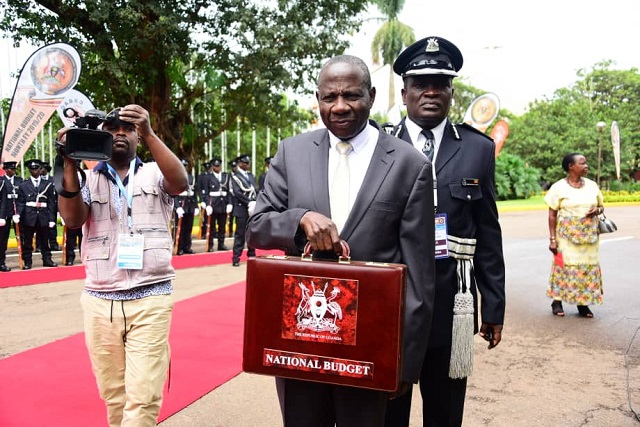
Non-governmental Organisations have advised the government to expedite passing of the local content bill and increase funding for the Small and Medium Enterprises in the upcoming national budget.
Kampala, Uganda | JULIUS BUSINGE | In a joint communique dated Jan.15, the NGOs under their umbrella organisation, Civil Society Budget Advocacy Group (CSBAG), said ensuring that government and businesses use local available resources for their production process, increasing SMEs funding from the current Shs200bn to Shs500bn and integrating the emyooga programme and related funds into the Parish Development Model will have a huge economic impact onto the population.
The NGOs also propose that the government expedites the passing of the National Health Insurance Scheme Bill to achieve universal health coverage, revise the capitation grant to factor in budget provisions to address COVID-19 related expenditures and undertake monitoring and evaluation of public expenditure.
The other proposals are; speed up rationalization of agencies, enhance coordination both at policy and implementation amongst ministries departments and agencies; adhere to strict fund accountability, eliminate corruption, timely payment of supplies and mainstreaming efficient revenue administration as opposed to increasing tax rates over the medium term.
Moses Isooba, the Executive Director for the Uganda National NGO Forum, said it is time for the government to now balance investment in infrastructure and social services such as health and education to accelerate economic growth and development.
This comes as government is projected to spend Shs40.4trillion in the Financial Year 2022/23, down from Shs44.7trillion for the current Financial Year.
According to the National Budget Framework Paper for the FY2022/2023 themed “Full monetisation of the Ugandan Economy through commercial agriculture, industrialisation, market access and digital transformation,” the government plans to boost aggregate demand through restoring domestic consumption, renewing private and public investment, and enhancing export promotion.
The government also plans to revitalise business activities through maintaining a good road network system, rehabilitation of the railway, electricity transmission to industrial parks and, commercializing minerals and oil and gas whilst re-boosting tourism development.
The government also proposes to enhance human capital development – health, education, water for human consumption and externalisation of labours.
Monetizing the economy
Meanwhile, data from the Ministry of Finance shows that the government paid Shs677bn in arrears to the private sector firms in the last Financial Year, with a promise to clear all the verified arrears in a three-year period in a bid to ease liquidity flow. In addition, Shs400billion was provided in FY2021/2022.
The government through the Bank of Uganda granted exceptional permission to banking institutions to provide credit relief to borrowers for up to 12 months effective April 1, 2020. So far, more than Shs7.9trillion worth of loans have since been restructured.
Similarly, Uganda Development Corporation provided low-interest long-term financing to businesses especially in the sectors of manufacturing, agribusiness and other private sector firms. For instance, in the FY2020/2021, the government through the UDC spent Shs126billion to support public-private partnership investments in the agro-industrialisation and manufacturing and another 908 loans worth Shs73.6billion were disbursed in FY2020/2021through the Microfinance Support Centre.
The government says wealth creation funds like Emyooga will now be enhanced to provide financial support to the economically active groups who are involved in the informal sector.
The government is also keen at maintaining macroeconomic stability for the new budget. This is through achieving stability in relation to ensuring that annual inflation remains low and stable to stimulate savings and investment.
The government also plans to continue with the implementation of the national financial inclusion strategy by working with private sector stakeholders as well as promote the use of digital technologies to reduce information asymmetry, and subsequently support achievement of increasing access to affordable financial services.
Quick facts and figures
- The total resource envelope in FY2022/23 is projected at Shs40.4trillion down from Shs44.7trillion for the current FY.
- Projected domestic revenue sources amounts to Shs25.5tn, out of which Shs23.7tn will come from tax revenue and Shs1.76tn from non-tax revenues. The rest of the money to fund the budget will be sourced externally.
- In FY2022/23 total debt repayment will amount to Shs15.20tn.
- There is going to be a reduction in local government financing from Shs4.570 trillion in FY2021/22 to Shs4.227tn in FY2022/23 despite an increase in the local government units that is; 10 cities, 135 districts, 41municipalities and recruitment of parish chiefs. Approx.83% of the LG budget is for recurrent expenditure (wage and nonwage), 17% of the LG budget is for development expenditure.
- Economic growth in the FY 2021/22 is projected at 3.8%up from 3.4 in 2020/21. Projected to reach 6% in FY 2022/23.
****
The post Budget: NGOs hope for speedy approval of local content bill appeared first on The Independent Uganda:.
from The Independent Uganda: https://ift.tt/t3X8UF0JB
0 Comments